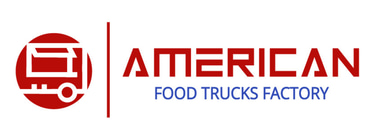Call Now (689)-237-5310📍 1726 N Kelley Ave, Kissimmee FL 34744 9AM-7PM Mon-Fri Nationwide Delivery
Understanding Food Truck Health and Safety Regulations
This post explains the essential health and safety regulations that every food truck owner must follow. It covers key areas like food handling, sanitation, fire safety, employee hygiene, and waste management. With practical tips for maintaining compliance, this guide helps food truck operators protect their customers, employees, and business.
Pedro Flaquer
5/17/20251 min read
Operating a food truck can be a profitable and rewarding business, but it comes with the responsibility of ensuring health and safety compliance. Failing to adhere to health and safety regulations can lead to fines, forced closures, or even the loss of your business license. Understanding and following these regulations is crucial for your success.
Why Health and Safety Regulations Matter
Health and safety regulations exist to protect your customers, employees, and your business. They ensure that the food you serve is safe to eat and that your food truck is a secure and sanitary environment. Compliance also helps you maintain a positive reputation and avoid legal issues.
Key Health and Safety Areas to Consider
1. Food Handling and Storage
Ensure proper food storage temperatures (refrigeration below 40°F, hot foods above 140°F).
Use food-grade containers for storage.
Implement proper handwashing procedures for staff.
2. Equipment and Sanitation
All cooking equipment must be cleaned and sanitized regularly.
Use commercial-grade, NSF-certified equipment.
Maintain a clean and pest-free environment.
3. Fire Safety
Install a fire suppression system in the cooking area.
Keep fire extinguishers accessible and ensure staff are trained to use them.
Regularly inspect gas lines, stoves, and electrical systems.
4. Employee Hygiene
Train staff in proper handwashing and food handling techniques.
Provide gloves, hairnets, and clean uniforms for staff.
Restrict sick employees from handling food.
5. Waste Management
Properly dispose of cooking oils, grease, and waste.
Keep waste containers covered and away from food preparation areas.
6. Licensing and Permits
Obtain the necessary health permits from your local health department.
Schedule regular health inspections and maintain your permit in good standing.
Display your permit visibly in your food truck.
Common Mistakes to Avoid
Ignoring local health codes and regulations.
Using non-commercial equipment that may not meet safety standards.
Failing to maintain cleanliness or allowing cross-contamination.
How to Stay Compliant
Regularly review local health regulations as they can change.
Train your staff on health and safety best practices.
Perform self-inspections to ensure ongoing compliance.
Work with a reputable food truck builder who understands health and safety requirements.
Conclusion
Health and safety are non-negotiable aspects of operating a food truck. By understanding the regulations and proactively maintaining compliance, you protect your customers, your staff, and your business. Ready to start your food truck journey? Contact us to learn how we build compliant, high-quality food trucks that meet all safety standards.
